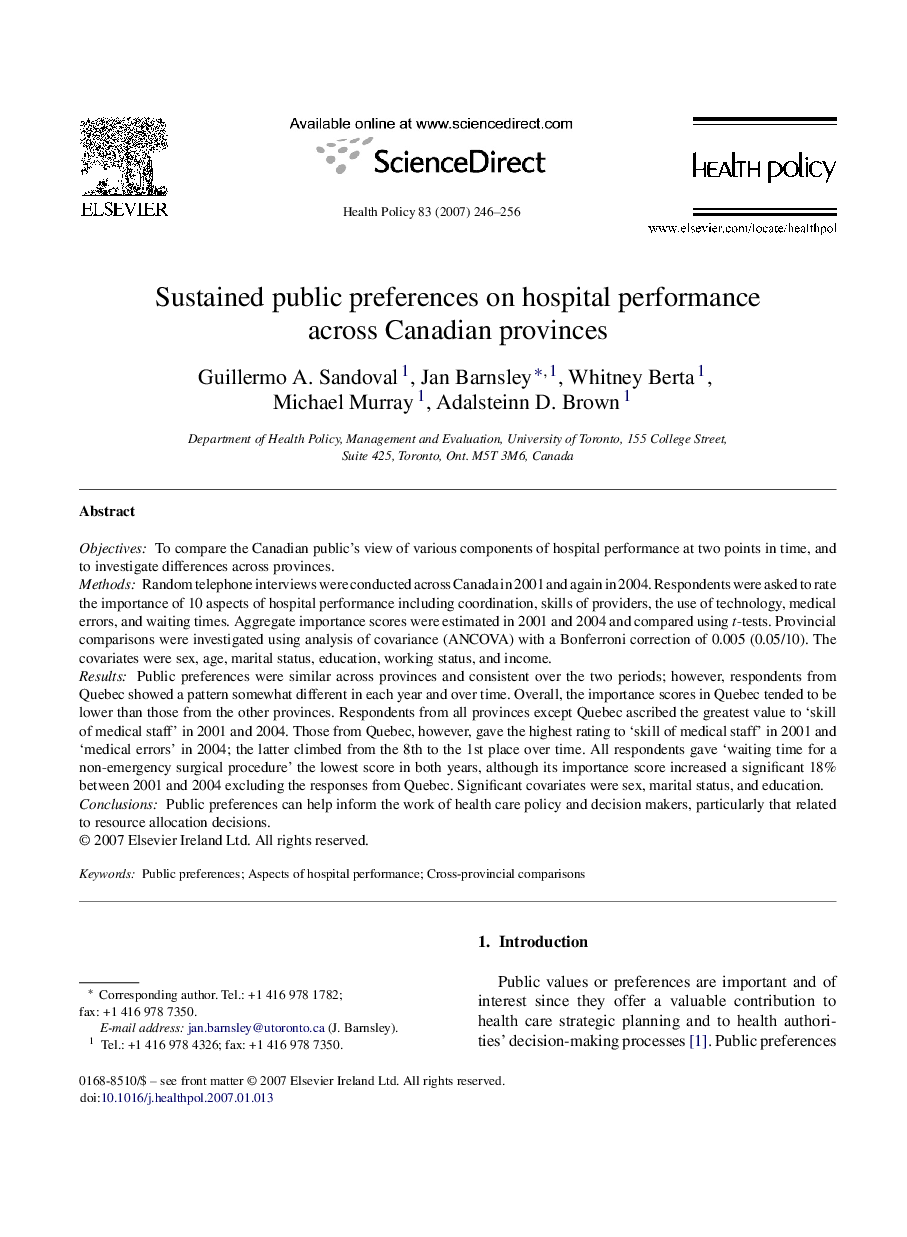| Article ID | Journal | Published Year | Pages | File Type |
|---|---|---|---|---|
| 4198947 | Health Policy | 2007 | 11 Pages |
ObjectivesTo compare the Canadian public's view of various components of hospital performance at two points in time, and to investigate differences across provinces.MethodsRandom telephone interviews were conducted across Canada in 2001 and again in 2004. Respondents were asked to rate the importance of 10 aspects of hospital performance including coordination, skills of providers, the use of technology, medical errors, and waiting times. Aggregate importance scores were estimated in 2001 and 2004 and compared using t-tests. Provincial comparisons were investigated using analysis of covariance (ANCOVA) with a Bonferroni correction of 0.005 (0.05/10). The covariates were sex, age, marital status, education, working status, and income.ResultsPublic preferences were similar across provinces and consistent over the two periods; however, respondents from Quebec showed a pattern somewhat different in each year and over time. Overall, the importance scores in Quebec tended to be lower than those from the other provinces. Respondents from all provinces except Quebec ascribed the greatest value to ‘skill of medical staff’ in 2001 and 2004. Those from Quebec, however, gave the highest rating to ‘skill of medical staff’ in 2001 and ‘medical errors’ in 2004; the latter climbed from the 8th to the 1st place over time. All respondents gave ‘waiting time for a non-emergency surgical procedure’ the lowest score in both years, although its importance score increased a significant 18% between 2001 and 2004 excluding the responses from Quebec. Significant covariates were sex, marital status, and education.ConclusionsPublic preferences can help inform the work of health care policy and decision makers, particularly that related to resource allocation decisions.
